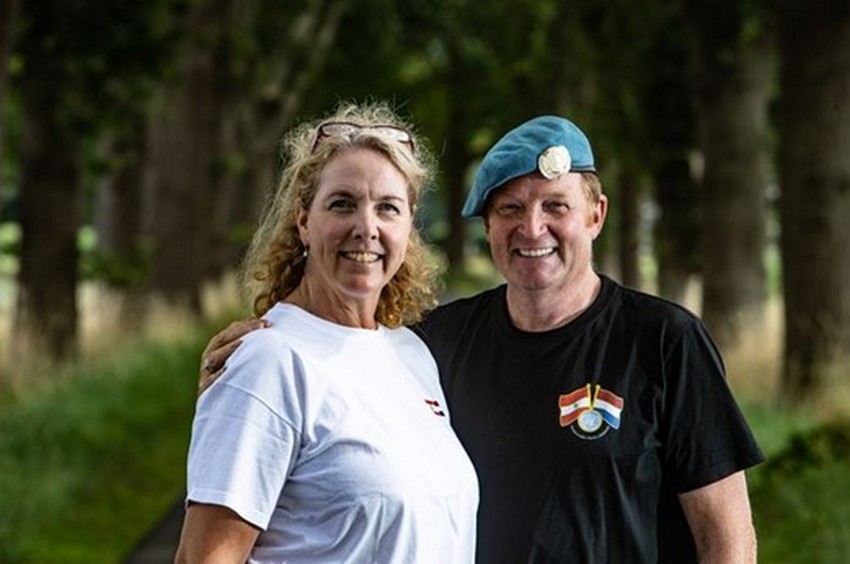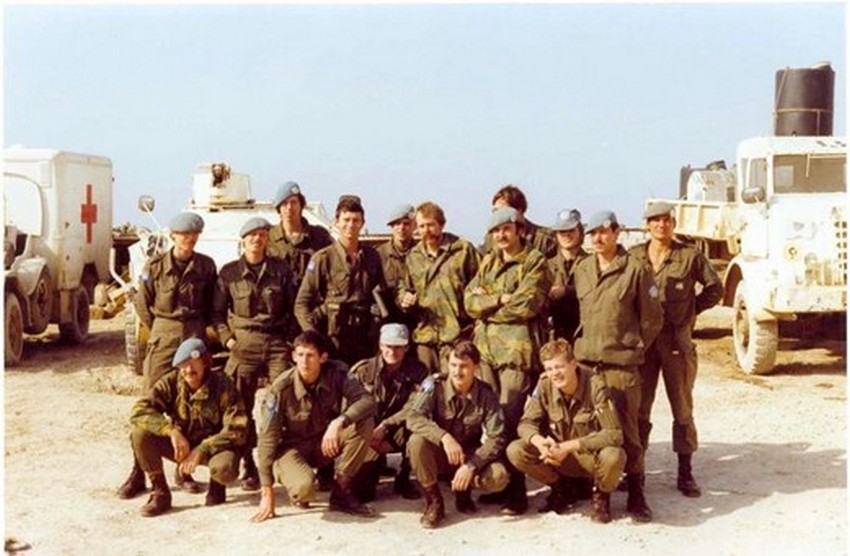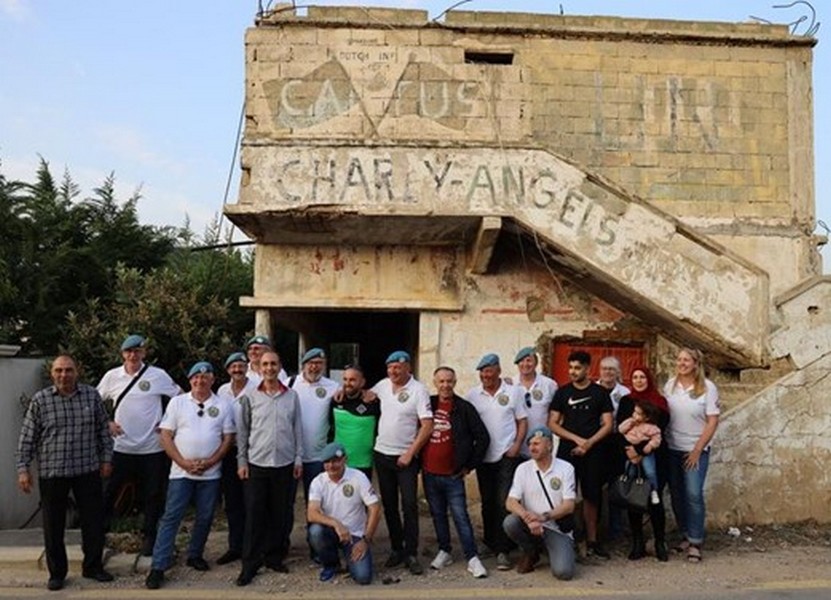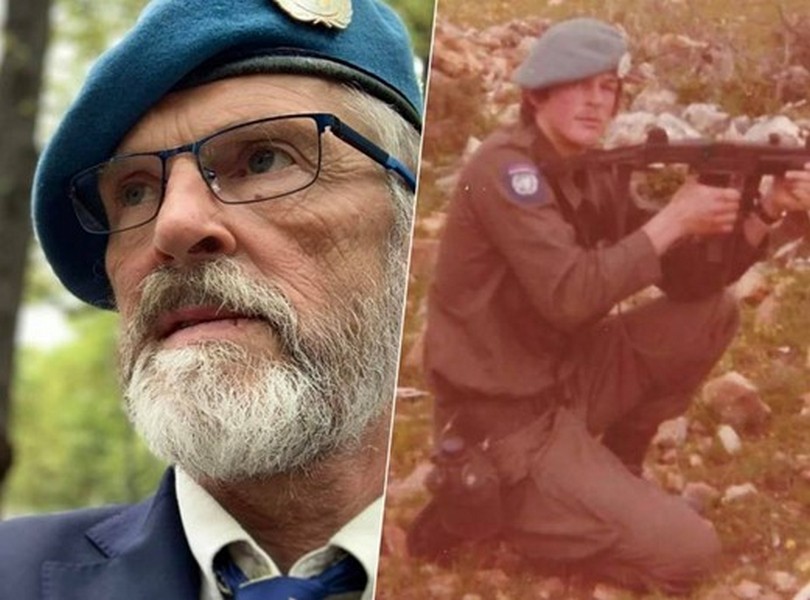

Israeli raid rips open old wounds of Lebanon veterans: 'To make you despondent'

Lebanon veteran Bert Kleine Schaars and his wife Jeannet, with whom he runs the Veterans for Lebanon foundation.
AD PREMIUM, 09 october 2024, © Ronald Hissink, Tonny van der mee. 
The Israeli invasion of southern Lebanon evokes many emotions among Lebanon veterans.
In the 1980s, some 9,000 Dutch soldiers took part in the UN peacekeeping mission (UNIFIL), in the area where war is now raging again. It evokes old traumas. The Veterans Institute is organizing a special meeting. More than a hundred veterans have already signed up. "Some wonder what it was all worth."
A year and a half ago, Bert Kleine Schaars was back in Lebanon with other veterans. They visited the south, where they had been deployed as UN peacekeepers 44 years ago. "We stood on the border with Israel and visited our old military posts," says the chairman of the Veterans for Lebanon foundation. "For some guys, it was good for processing. That was nice to see.''
Now Kleine Schaars has mixed feelings. His mind is on the current situation in Lebanon, at the same time his thoughts go back to his mission. "We were in the village of Odessey last year. That has now been shot to pieces. To make you despondent.''
The UN peacekeeping force UNIFIL began the mission in 1978 after an incursion by Israeli forces into southern Lebanon. The invasion was aimed at eliminating the Palestine Liberation Organization (PLO) in that area, following a series of terrorist attacks against Israelis.

Dutch soldiers of the UN peacekeeping force Unifil in Lebanon. © Private image
From 1979 to 1985, the Netherlands supplied more than 9,000 peacekeepers. They were sent to Lebanon without proper preparation and ended up in a 'war hell'. About 9 percent of veterans suffer from post-traumatic stress disorder (PTSD), almost twice as many as in other Dutch peacekeeping missions.
Thrown back
Now that Israel has once again invaded southern Lebanon, veterans are being thrown back in time. "We receive daily phone calls from veterans who are worried," says Rob Deckers, vice-chairman of the Dutch Unifil Association.
"Most veterans were between the ages of 18 and 22 at the time. They have been through the same thing that is happening there now. That makes a big impression. Especially with people who have come back damaged. People have put their lives on the line. Some wonder what it was all worth.''

Lebanon veterans during a return trip of the Veterans for Lebanon foundation. © Veterans Foundation for Lebanon
For veterans Johan Baars and Aloys Bijl, it feels as if nothing has changed in Lebanon since their deployment in 1979. "Did we sit there for Jan Lul at the time?" they wonder.
Because of the situation and the many concerns, the Veterans Institute is organizing a meeting for Lebanon veterans in Doorn on October 13. Since the announcement on Wednesday afternoon, more than a hundred registrations have been received within a day. According to Rob Deckers, veterans mainly need to be together and talk.
The bond between the veterans and the civilians in Lebanon has remained close over the years. Veterans are still in touch with people there. The children of that time are grown up now. It has even resulted in marriages. Interest groups have been organizing return trips for years.
Teun van der Zee (64) from Buitenpost was taken by Hezbollah in 2006 during his trip to the place where he was stationed at the time. "I was filming when I was stopped by two guys on a motorcycle. I had to go in a Mercedes with a German license plate, but refused. They put me aside and watched all the film footage. It went on in a friendly way. It only lasted 4 hours, but I didn't know what was going to happen.''
Van der Zee, who as a 17-year-old was sent out for six months in 1979, has signed up for the meeting at the Veterans Institute. "It's terrible what's happening now, for everyone. The way Israel strikes back is disproportionate. This evokes emotions in me. We got to know a lot of people and were able to do good things there."

Lebanon veteran Teun van der Zee. © Private image
Last year was the last return trip. "Our biggest concern now is the population there," says Fred Lardenoye of the Reunion with Lebanon foundation. "We're struggling to get in touch with the people we know."
The foundation is also organizing a meeting on October 19 in Eindhoven. "Especially the people who have been traumatized by the mission are now having a hard time with it. Most are now at an age where they are retiring and looking back on their lives. Then the memories of Lebanon come to the fore. There are veterans who still get PTSD symptoms. The current situation will contribute to that.''
The planned trips for this year had already been cancelled. It was not safe after the bloody Hamas attack on October 7 last year, and the subsequent Israeli explosion of violence in Gaza and the shelling between Hezbollah and Israel.
Contribution to peace
"Many veterans wonder if our mission has been useful," says Kleine Schaars. "I am convinced that at the time we were able to prevent the situation from escalating further and that we were able to contribute to peace at that time. It was agreed that all warring parties would be disarmed. That never happened. So you could bet that this would happen now.''
His foundation collects medicines and relief supplies for Lebanon. This is done in collaboration with the Containers of Love foundation of the Lebanese Sumeya Hamie from Roermond. "I hope this is a signal to the Dutch government to help," says Kleine Schaars. "Lebanon is a beautiful country, with beautiful people. They deserve rest and peace.''

